Older Australians want their human rights as they are ignored by NDIS and become ‘invisible’
They are the Australians who helped build much of our country’s infrastructure, but in their twilight years they’ve been forgotten. Now, they want change. Have your say.
National
Don't miss out on the headlines from National. Followed categories will be added to My News.
They are the Australians who helped build much of our country’s infrastructure, but in their twilight years they’ve been forgotten, rendered powerless and left to struggle without even the most basic of human rights.
Campaigners believe now is the time to galvanise the nation into backing older people and to tackle an ‘ism’ nobody talks about – ageism.
They say their decades-long fight for better rights for older people is gaining strength and hope the new Aged Care Act, expected to be in place by July next year, will be centred around older people’s human rights.
“We think ageism hurts us all,” Patricia Sparrow, CEO of the peak body for older people, COTA, said.
“One of the things we want to see is supportive decision making.
“Don’t assume because someone is older or they have cognitive decline they can’t make decisions about themselves, or be allowed to take risks,” Ms Sparrow said.
“We are all an older person waiting to happen if we are lucky enough.”
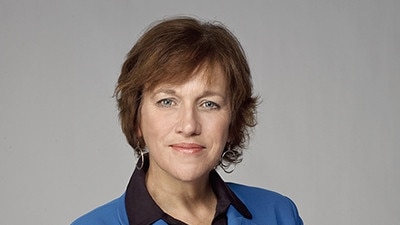
Residential aged care is a big focus for advocates who say once residents sign up to a facility, they lose the right to make even the most basic decisions for themselves, such as being afforded a soft boiled egg due to health and safety, having a choice about when they shower or being able to go for a walk without permission.
Older people are also missing out on basic healthcare.
One NSW study found that almost 77 per cent of people had never received a dental visit after moving into aged care and 14 per cent suffered from dental pain.
A report from the Australian Medical Association found that better investment in primary care for the over 65s and those in aged care would save around $21.2 billion over four years by preventing avoidable hospital admissions.
The royal commission also revealed the shameful treatment of some older people, with four in 10 aged care residents the victim of physical or emotional abuse or neglect.
But it’s not just those in aged care that are disadvantaged.
Ms Sparrow said research shows around a third of those over 55 have been victims of ageism.
She said it impacts every facet of an older person’s life, from missing out on jobs, promotions or training in the workplace, to being more likely to be targeted for redundancy, having to pay more for travel insurance, difficulties getting a loan or a credit card, not getting the same medical care as everyone else, to simply being ignored in public spaces.
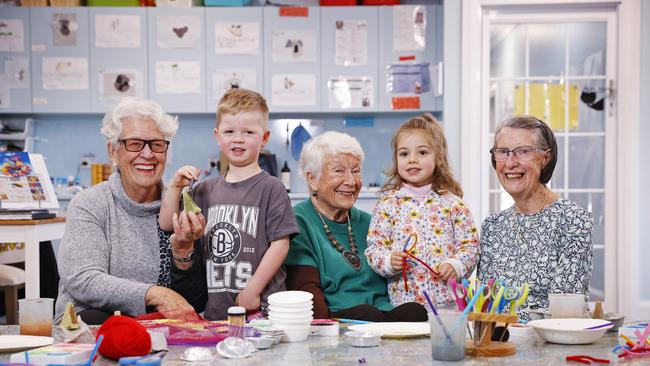
She said older people should be celebrated for their experience and talent, but are often infantilised by younger people, assumed to have a hearing issue or to be cognitively impaired.
Older Persons Advocacy Network CEO Craig Gear said he’s knows of people dyeing their grey hair before a job interview to give them a better chance.
Others are angry because they say they are simply ignored.
“Older people often say they feel invisible,” Mr Gear said.
“They will stand in a shop and a younger person will be served before them.”
Advocates believe phrases such as ‘elderly’, ‘Boomers’ or the ‘Silver Tsunami’ are negative and ageist, and don’t help.
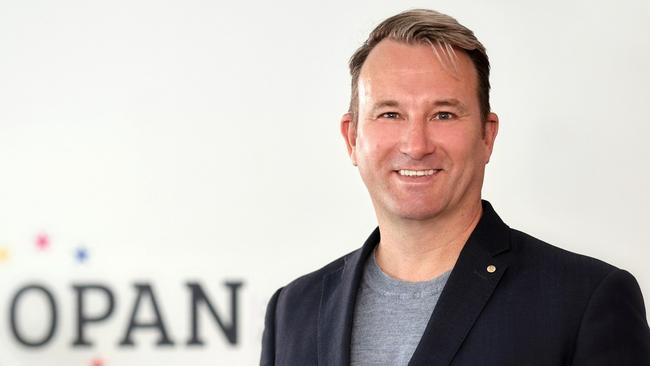
The Australian Human Rights Commission released a report this year looking at how to change negative perceptions of ageing and older adults, and found even short educational workshops on ageism saw changes in behaviour.
One particular group who say they’ve been discriminated against are fighting back.
They all have a disability but failed to qualify for the National Disability Insurance Scheme due to being 65 or older at the time the scheme was introduced or because they become disabled after their 65th birthday.
Around 800 people have signed up for a class action against the NDIS.
One of them is Peter Willcocks, 73, from Melbourne, who had polio as a child.
“It’s morally wrong to exclude someone on age alone,” Mr Willcocks said.
“I’m a victim of ageism straight up.
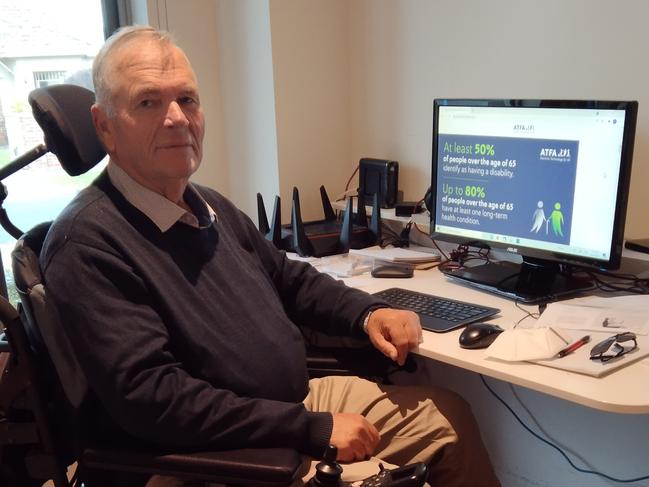
“You can’t pick a year out of a tree and say if you are 65 you’re over the hill. It’s hurt so many people.”
Mitry Lawyers, who is taking the case to court, estimates the average annual loss for people who cannot access the scheme is in the tens of thousands of dollars.
Mr Gear said intergenerational mixing and building friendships with an older person is the best way to reduce discrimination.
Research shows it benefits all.
For older people socialising with younger people improves their mood, confidence, physical strength and appetite.
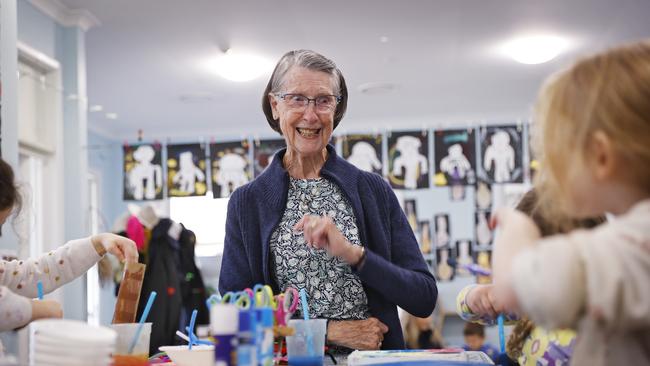
Warren Cox, 87, moved into RSL LifeCare Narrabeen, in Sydney, with his wife Pat, 80, just four weeks ago.
Last week he was invited to the onsite preschool to meet a group of four-year-olds, where he spent time chatting and helping them with their arts and crafts.
“It doesn’t quite feel like home yet,” Mr Cox said of his new accommodation. “But today was beaut. It was my best day yet.”
Little Diggers Preschool Centre Director Linda Watton said some of the little ones are from overseas and don’t have grandparents, so their “grandfriends” are a great addition to their lives too.
Being on the same site as the aged care facility makes intergenerational contact easy.
“Wherever we go we wave and say hello,” Ms Watton said. “Sometimes you cry, it’s so rewarding.”
ELDER ABUSE ON THE RISE
A shocking one in six people in Australia are the victim of elder abuse – and the most likely perpetrators are their sons and daughters.
Helen Wallace from the Caxton Legal Centre in Brisbane sees around 1000 older clients a year. Most are in their 60s and 70s.
“The abuse can be psychological, emotional, financial, sexual or physical abuse and neglect and the perpetrator is within a relationship of trust, such as a family member, friend or neighbour,” Ms Wallace said.
Children are the largest perpetrator group for all types of elder abuse except sexual abuse, which is most likely to be committed by a friend of the victim, according to a 2021 report by the Australian Institute of Family Studies.
Ms Wallace said victims often feel a lot of shame.
“We’ve seen cases of adult children or grandchildren moving in, not paying their way,” Ms Wallace said.
“Some threaten to stop them seeing their grandchildren unless they pay for a new car, or give them a house deposit for example.”
She said in one case a daughter encouraged her mum to move to Queensland to be near her. She transferred money so her daughter could buy her a unit, but gambled away $100,000 of it.
Ms Wallace said she wanted better awareness of elder abuse and a national plan for the prevention of abuse for older Australians beyond 2023.
More Coverage
Originally published as Older Australians want their human rights as they are ignored by NDIS and become ‘invisible’




